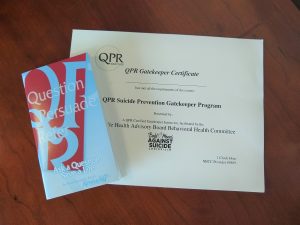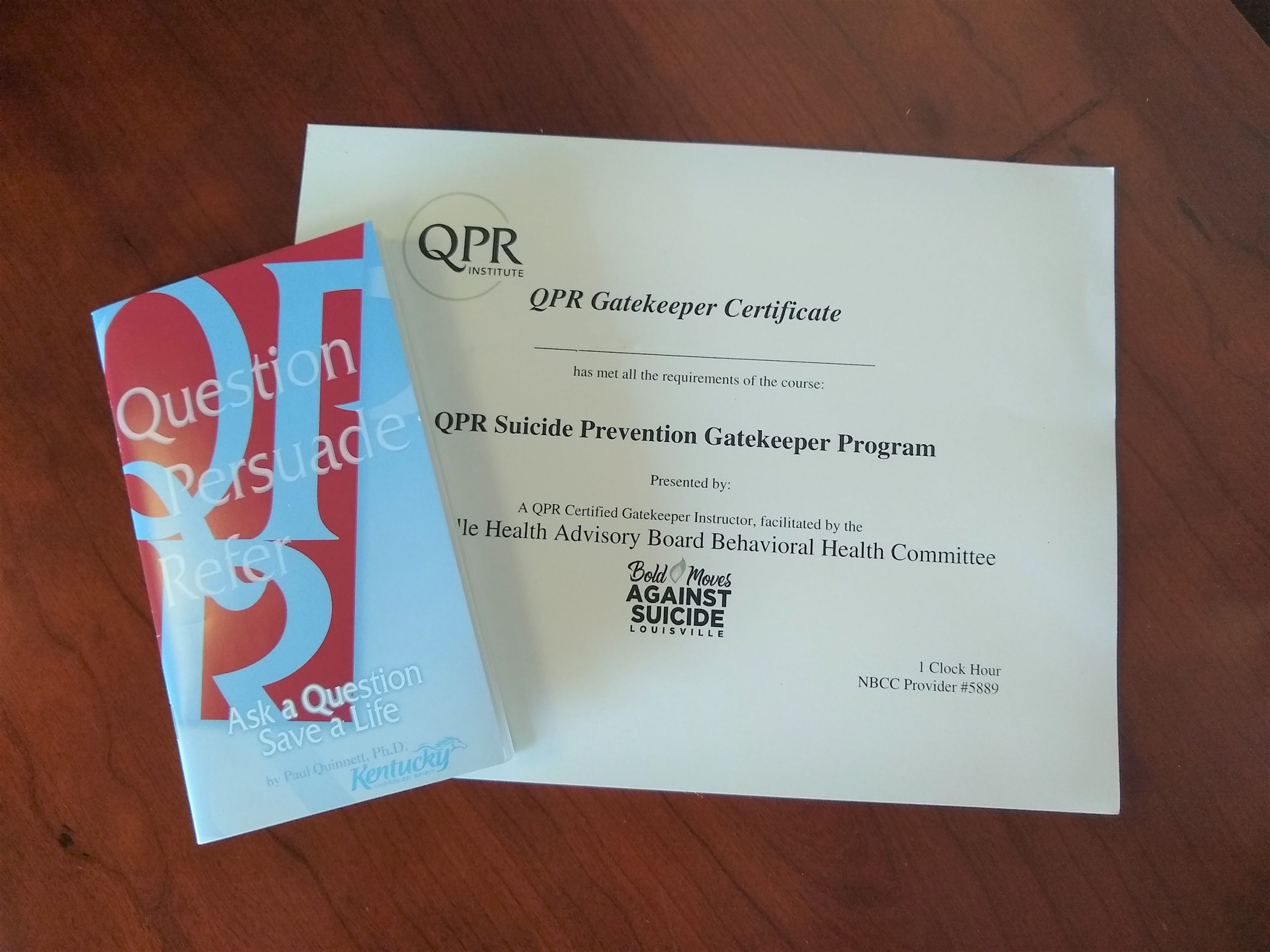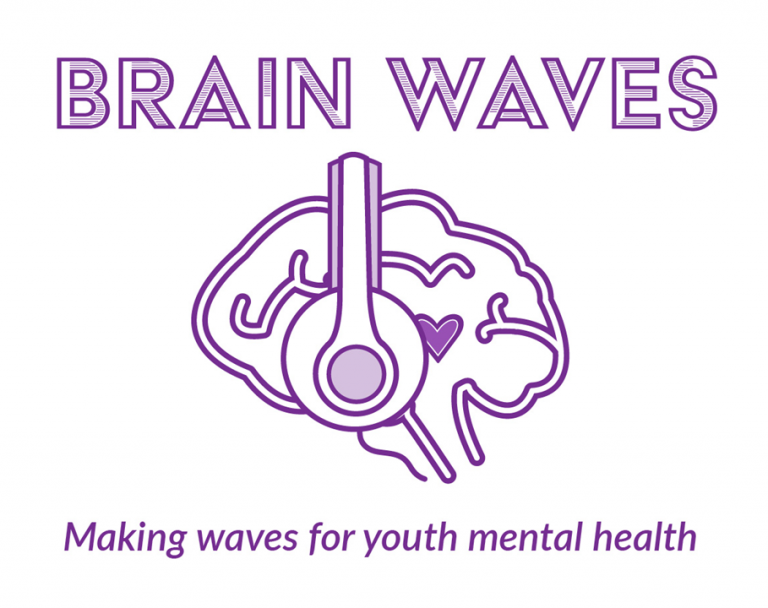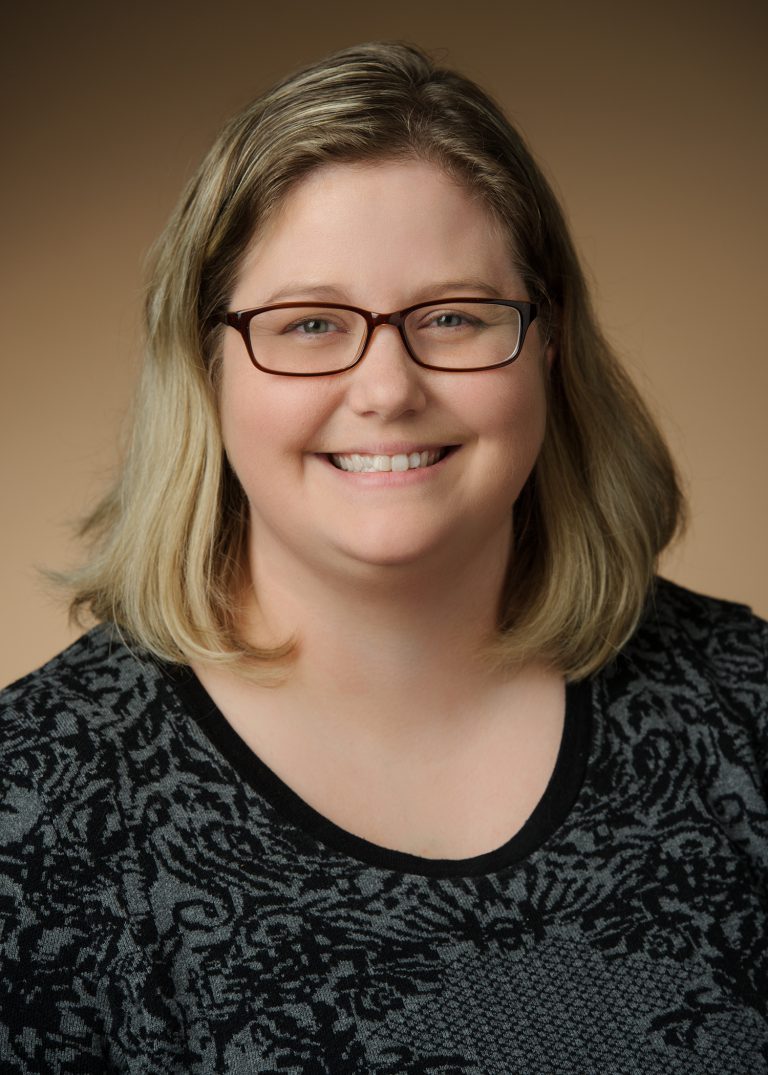 A couple of weeks ago, the Kentuckiana Health Collaborative held its September Community Health Forum. The topic was youth mental health, and the date coincided with National Suicide Prevention Week. After the Forum, the KHC hosted a Question, Persuade, Refer (QPR) training as part of a goal to set a record for people trained in one week. Similar to CPR, QPR is a 90-minute training course designed to support an emergency response to someone in crisis. It was designed to equip individuals with the tools they need when someone in their life is facing a suicide crisis.
A couple of weeks ago, the Kentuckiana Health Collaborative held its September Community Health Forum. The topic was youth mental health, and the date coincided with National Suicide Prevention Week. After the Forum, the KHC hosted a Question, Persuade, Refer (QPR) training as part of a goal to set a record for people trained in one week. Similar to CPR, QPR is a 90-minute training course designed to support an emergency response to someone in crisis. It was designed to equip individuals with the tools they need when someone in their life is facing a suicide crisis.
I was in that position last year, trying to convince the person I loved most in the world not to take their own life. It’s an experience I don’t wish on my worst enemy. I’m at a year of therapy and counting, and although I am a much stronger person for the experience, I wish I had never been through it.
In the end, my loved one didn’t take their life, and they got the talk therapy and medication needed to push through. Multiple people have credited me with that outcome. I’m not sure if I agree with that, but I do admit that my involvement might have had a positive impact and recognize now the power that even one individual can have in moments of crisis.
Hence the need for trainings like QPR. Suicide is the 10th leading cause of death in the United States, and it’s estimated that for every death by suicide, there are 25 more attempts. It happens more commonly than we’d like to believe. During National Suicide Prevention Week, more than 2,200 people in Louisville were trained in suicide prevention in 50 locations across the city.
I’ll admit that I was slightly disappointed by the QPR training. I guess I thought that it would reveal one magic thing that I could have said or done differently, to make the situation turn out more smoothly than it did in my case. I was disappointed to find that there is no magic bullet to be had. People are complex. These situations are complex. There is no one-size-fits-all approach to suicide prevention. It all comes down to being persistent, really listening to what someone else is telling you either with their words or actions, and not being afraid to have the tough conversations.
There is no one-size-fits-all approach to suicide prevention. It all comes down to being persistent, really listening to what someone else is telling you either with their words or actions, and not being afraid to have the tough conversations.
I don’t think I was prepared for the traumatic memories that QPR would bring up. Much of the 90-minute session was devoted to recognizing the signs and behaviors of distressed loved ones. I can say that from my personal experience, what was taught in QPR related to this was almost word-for-word what I experienced. I had to leave the room more than once in tears. But I always returned, determined to see it through. Then came the disappointing part of the training. The part where I discovered that there is no perfect phrase that can talk someone off the proverbial ledge. But that doesn’t mean that we can’t have an impact on the situation. We can all create safe spaces for our loved ones to talk to us when they are struggling, and we can together get through the tough times.
I had nightmares that evening about those past traumas. But then, a funny thing happened. The nightmares that I’d been accustomed to having for the last year stopped. Situations and places that used to trigger me no longer did. And I realized that it was a direct result of the QPR training. I had long ago forgiven myself for what I had seen as failings when I was faced with the crisis, but it turns out that I didn’t need to be forgiven at all. By participating in the training, I realized that I did probably more in that situation than I should have been able to. It wasn’t blind luck that prevented my loved one from taking their life. And that was the closure that I didn’t know that I needed.
It sounds like a cliché to say that you never think it will happen to you until it does. But that’s exactly how it is. And I would recommend that anyone learn how to have that conversation and develop that vocabulary, through QPR or a similar program. Because you never know when you might need those skills.






